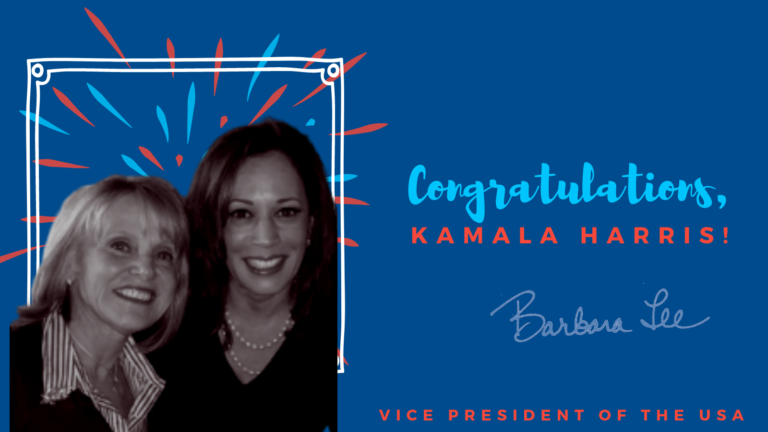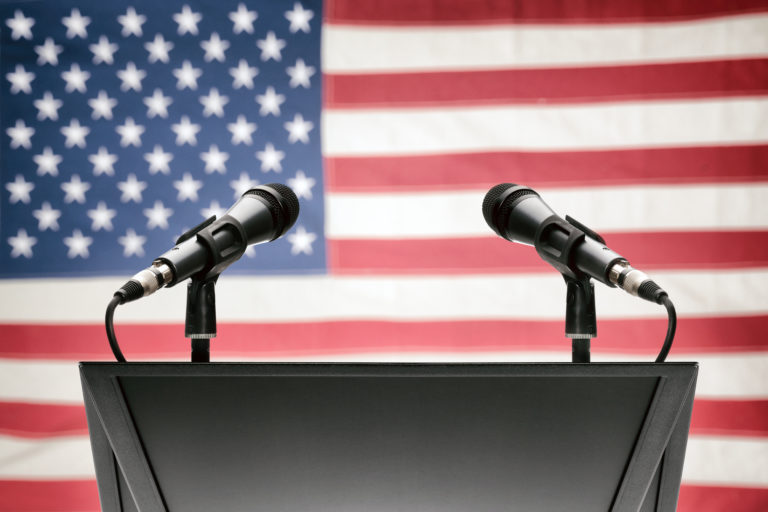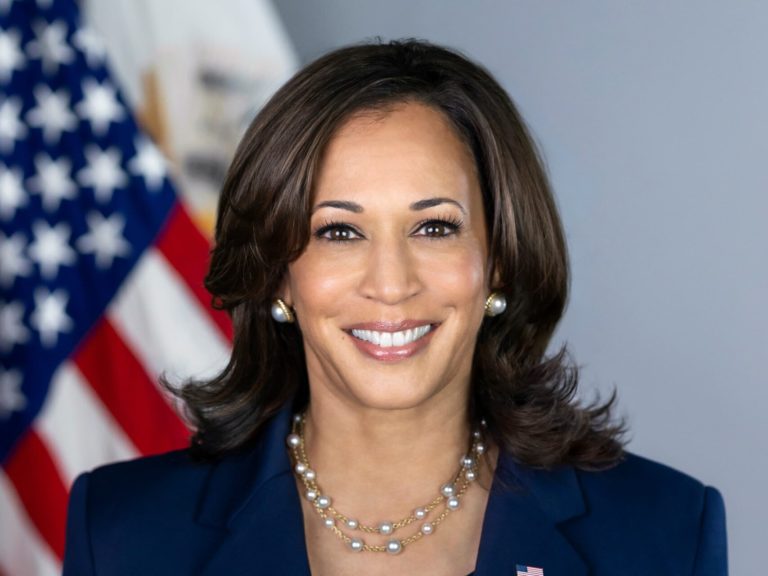Barbara Lee, Founder and President, The Barbara Lee Family Foundation As someone who has been…
Double Standards, The Vice Presidency, & Kamala Harris

Last November, when Kamala Harris broke a major barrier for women in politics by getting elected as the first woman and first woman of color Vice President of the United States, I wrote here for Gender on the Ballot that sexism and racism would rear its ugly head in some way against her in the role. And here we are a year later, with several articles out critiquing her time in office and spelling doom for her political career before she’s even made it two years.
One recent example of the exaggerated criticism from earlier in November, while Vice President Harris was traveling to France: critique of her pronunciation of the word “the.” There was also endless criticism of her purchasing nice cookware from a Parisian store. Certainly what Vice President Harris paid for cookware in today’s dollars pales in comparison to a certain early Vice President and President, Thomas Jefferson, who spent hundreds of thousands in today’s dollars on French wines.
But the most focused criticism seems to be about the significance of her work. Multiple media outlets are asserting Vice President Harris could do more, as the New York Times recently wrote after her trip to France: “Ten months into her vice-presidency, Ms. Harris’s track record on delivering on the administration’s global priorities has been mixed.”
The very first Vice President of the United States John Adams said: “My country has in its wisdom contrived for me the most insignificant office that ever the invention of man contrived or his imagination conceived.” By the 20th century, opinions of the role had not improved: John Nance Garner, Vice President to Franklin D. Roosevelt from 1933 to 1941, famously said the office “Wasn’t worth a bucket of warm piss.” Even current President Joe Biden, when he was Vice President to Barack Obama, joked with a fellow Vice President—of the Harvard College Student Body—that the job was a bitch. The role of vice president has never been viewed very favorably by all the white men before who have occupied it because it’s a role that casts tie-breaking votes in the Senate and stands in for the President when he is unavailable, indisposed, or worse. And that’s nearly it. As a result, the public does not expect the VP to hold a major legislative agenda. So why is Vice President Kamala Harris being held to a double standard of needing to accomplish more than any of her predecessors were expected to?
Additionally, political commentary has assumed that Harris’s potential shot at the Presidency is already over, like this recent headline with The Telegraph, due to some staff departures and change over in her first year in office. Media outlets have written of “dysfunction” with support from several unnamed sources describing the environment as “difficult” to work in, and this has led to staff currently with Vice President Harris tweeting their support and happiness working for her. These are critiques women face as leaders often, but most specifically Black women, where the critique of being “difficult” or “aggressive” is grounded in the angry black woman trope. And these tactics are used because they are damaging to women’s leadership credibility. Research from the Barbara Lee Family Foundation shows that if women are perceived to be unable to manage staff/office/departments, they are not considered “qualified” for public office. Men are not discredited in the same way.
If we are to elect more women to top leadership roles such as mayor, governor, vice president, and eventually president, they should not be asked to go above and beyond even what their white male predecessors have been expected to do. They should be allowed to blaze their own trail. And those who say they care about seeing more women in top leadership roles should be publicly calling out the double standards and disrespect when they see it.






